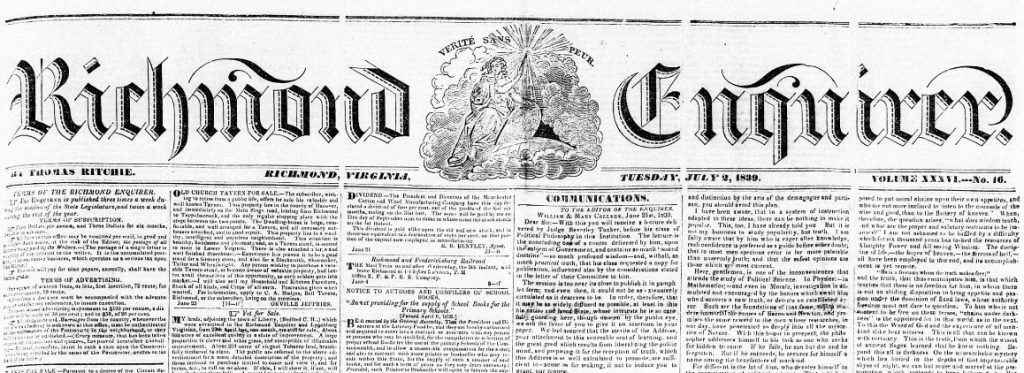By Paul Caputo and Jeffrey Carl

A scholarly discourse on the wrongness of traffic jams on Cary Street; the question “No, Honey, REALLY, what’s the matter????”; the Richmond Marathon; fat guys in goofy hats; throwing up but still running; and Yoko Ono. Like pretty much everything else we wrote for The Richmond State, it all seemed uproariously funny at the time.
Hi. We are Jeff and Paul. And we will be Julie and Omar, your Cruise Directors. Welcome aboard!
Actually, we are here to warn you, valued STATE reader, about a matter which no doubt concerns you deeply, especially if you are as weird as we are. This is aside from the serious matters which worry us every day, such as “What’s for dinner?,” “How could they fit that much cholesterol in it?,” “How in the name of God are we going to pay for that without actual jobs?” and “Would we like that ‘Super-Sized’ for only 39 cents extra?”
We are worried about the declining state of basically everything. Except “The Simpsons,” which is still fine. And so we present our first in a series (unless they can us after this one) of in-depth examinations of all of the individual reasons that the world as we know it is more or less going to pot.
The first and most glaring example of this striking decline in everything is the recent Richmond Times-Dispatch Marathon, a couple of Sundays ago.
Now, while running is great cardiovascular exercise (French for “hating yourself”), there are several downfalls to it. The first is that running is bad for your knees. Well, not your knees. A runner’s knees. You are clearly not a runner because you are sitting down reading this column. Were you a runner, you wouldn’t have time to read this because you would be a.) running, b.) eating tofu while running, or c.) struggling to get out of your straitjacket.
Ergo, (Latin for “So, anyway,”) the second downfall of running is that really serious runners are crazy as a football bat. We know this because we used to be runners. As members of our respective high schools’ varsity cross-country teams., we learned that runners are people with heart, desire and the knowledge that they did not have the coordination to play actual sports.
We ran over hill and dale. We discovered the limits of endurance. We discovered self-discipline. We discovered that wearing those really short running shorts made us, as guys, very uncomfortable. We discovered conclusively that the fabled “runner’s high” was actually just a “bad trip.”
But that is neither here nor there.
What is both here and there is that the Times-Dispatch Marathon was the largest public display of general disaster in the city since the last time the Yankees burned it. Or the last time they had the marathon.
If you were watching Channel 12’s special live marathon coverage, you missed the best part of the race. It was a moment that defined running: The Moment.The Moment itself was momentary – it seemed to last only a moment, but it was a momentous moment. Especially for those who had to wash momentos of the moment off their clothes.
The Moment occured with the eventual winner, Mark Harrison, several miles from the finish line and a full mile ahead of the next runner. Harrison, striding with confidence and determination, took a brief moment to glance at the fans on the side of the street. Seeing the cheering faces and the waving hands, Harrison turned his head and vomited.
And he kept running.
Then, as an encore, he threw up again.
Without breaking his stride.
Now, as former runners ourselves, we know we what Harrison was thinking: “That damn fat guy with the goofy hat.” Allow us to explain.
The most distinct difference between runnners and fans at an event like the marathon is that while runners are often delirious on top of being insane to begin with (as evidenced by the fac t that they are voluntarily running 26 miles), the fans are merely sadistic. Your average running fans will stand on the side of the road, smiling, remaining stationary and drinking beer, while the runner struggles by, sweating up to (true fact!) fourteen gallons of water per second.
Then, seeing the runner, the average fan will actually yell something like, “Keep it up!” or “You’re almost there!”
Now, being runners ourselves, we know that “almost there” translates directly into “You poor bastard. Ha ha!”
The runner will usually grin encouraginly at the fans and mouth something like “Please kill me.”
We are certain that Harrison’s reasons for vomiting had nothing to do with the actual physical exertion involved with running. Instead, we know that there was a fan, most likely a fat one, wearning one of those hats with two beers attached to it and the two bendy-straws hanging down to suck on, who yelled something like “Hurry up!” as Harrison was running by. His only response, since strangling the fan would require far too much energy, was to “barf”, or, as the French say, boot.
Jeff saw the Richmond marathon first-hand, sitting in his car, stuck in the traffic jam on Cary Street, which extended (true fact!) a bajillion miles long (the traffic jam, not Cary Street). Hundreds of cranky motorists sat in their cars, watching the valiant efforts of these hearty athletes, and all (the cranky motorists) thinking, “If that traffic cop wasn’t here, I could just run over ‘em and be on my way.”
Consider this proposition: a runner weighs roughly 150 pounds and is made of soft, fleshy material. A car weighs up to four tons and is made of metal (except for Geos, which are made of Nerf).
Furthermore, the cars are on their way somewhere important, like Denny’s or home to watch “The Simpsons.”
The marathon runners aren’t going anywhere, and they’re even doing that slowly. These people have so much free time that they’re running 26 miles to go in a big circle. And, while we are certainly in favor of “free time,” that’s just ridiculous.
Think of all the things these people could have been doing with their time. Like curing cancer. Or feeding ducks. Or sending us money.
Let’s look at this whole “marathon” thing from the eyes of the runners. The reason we can do this is not because we are actual runners ourselves, but rather because we are columnists and we know everything. For instance, we know the very simple and obvious solutions to age-old questions like “What is the meaning of life?” and “Why are women insane?” and “Hey, honey, what’s the matter?” and “NO, REALLY, WHAT’S THE MATTER?” Of course, if we just came right out and told you theanswers to these questions, there wouldn’t be a need for a professional columnists and we’d have to live in cardboard boxes instead of the luxurious dumpsters we live in now.
So, years ago, more than three thousand (a number we made up in lieu of doing any actual research) potential runners were sitting on couches and in diners across the city, nation and world. Suddenly these people got glints in their eyes, which sounds as if it should hurt. Anyway, followed by the glint, these people got ideas, and they started thinking strange thoughts.
They thought, That’s it. I got it. I’ll RUN! I won’t run from anything. or to anywhere, I’ll just run. And I’ll run a LOT, so that I am often sweaty and always always wheezing. And I will badger OTHERS to run, until EVERYONE is running, and we are all so busy sweating and wheezing that our Alien Overlords From The Planet “Gort” will have NO PROBLEM conquering the world! HA HA HA HA!
Or at least we think it was something like that.
This thought process ended years later at the starting/finish line on 6th and Broad streets when, when all those trillions (or whatever) of running careers reached a climax. As each of these runners crossed the finish line, they thought, almost in unison, “Great Creeping Buddha! What was I thinking?”
The Big Question here is: who is to blame for all this nonsense? The runners? No. That would be adding insult to injury and vomit. The fans? No. They had the only ones who had the sense not to actually be running. The Times-Dispatch? Convenient, and it’s always good to blame them for something, but probably not in this case. The City Council? True, another easy target – and extremely funny – but this is still probably not their fault. That huge pitcher of Kool-Aid that used to bust through walls and sing during their commericals, back when we were kids? No. In fact, that’s just stupid.
Who, then?
That’s right, Yoko Ono. Why? Because Yoko Ono – besides the fact that in the “World’s Most Irritating Person” contest she finished second only to “Gallagher” – broke up The Beatles, leading to a chain reaction of disasters including spiraling inflation rates, the chart-topping success of the band “A-Ha” and an overall increase in crime, disease, volcanoes and gross “yeast infection” medicine commercials during TV programs that guys mistakenly watch. Ono’s continued existence is one of the Seven Signs of the Apocalypse (French for “going to Hell in a handbasket”). Other signs include Candians winning the World Series and Keanu Reeves “performing” “Hamlet.”
So this event, which fulfilled biblical prophecy (Revelation 14:9 “And the Beast shall say unto John, ditch Paul and make irritating albums with me”), began the long cascade of all-around berserkness which is responsible for the marathon and the general decline and fall of more or less everything.
Or whatever.

